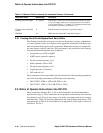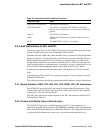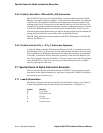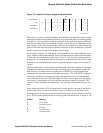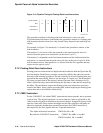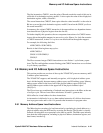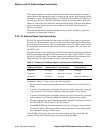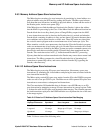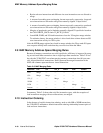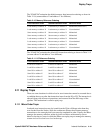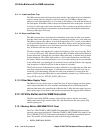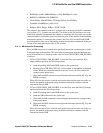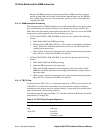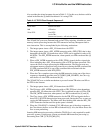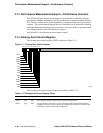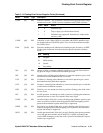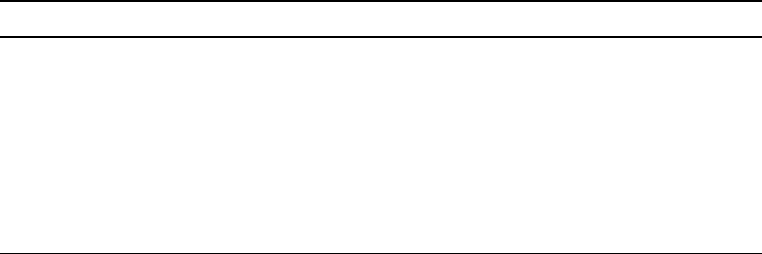
2–30 Internal Architecture
Alpha 21264/EV67 Hardware Reference Manual
MAF Memory Address Space Merging Rules
• Byte/word store instructions and different size store instructions are not allowed to
merge.
• A stream of ascending non-overlapping, but not necessarily consecutive, longword
store instructions are allowed to merge into naturally aligned 32-byte blocks.
• A stream of ascending non-overlapping, but not necessarily consecutive, quadword
store instructions are allowed to merge into naturally aligned 64-byte blocks.
• Merging of quadwords can be limited to naturally-aligned 32-byte blocks based on
the Cbox WRITE_ONCE chain 32_BYTE_IO field.
• Issued MB, WMB, and I/O load instructions close the I/O register merge window.
To minimize latency, the merge window is also closed when a timer detects no I/O
store instruction activity for 1024 cycles.
After the IOWB merge register has closed its merge window, the Cbox sends I/O space
store requests offchip in the order that they were received from the Mbox.
2.9 MAF Memory Address Space Merging Rules
Because all memory transactions are to 64-byte blocks, efficiency is improved by merg-
ing several small data transactions into a single larger data transaction. Table 2–9 lists
the rules the 21264/EV67 uses when merging memory transactions into 64-byte natu-
rally aligned data block transactions. Rows represent the merged instruction in the
MAF and columns represent the new issued transaction.
In summary, Table 2–9 shows that only like instruction types, with the exception of
load instructions merging with store instructions, are merged.
2.10 Instruction Ordering
In the absence of explicit instruction ordering, such as with MB or WMB instructions,
the 21264/EV67 maintains a default instruction ordering relationship between pairs of
load and store instructions.
Table 2–9 MAF Merging Rules
MAF/New LDx STx STx_C WH64 ECB Istream
LDx Merge —————
STxMergeMerge————
STx_C——Merge———
WH64———Merge——
ECB————Merge—
Istream—————Merge



